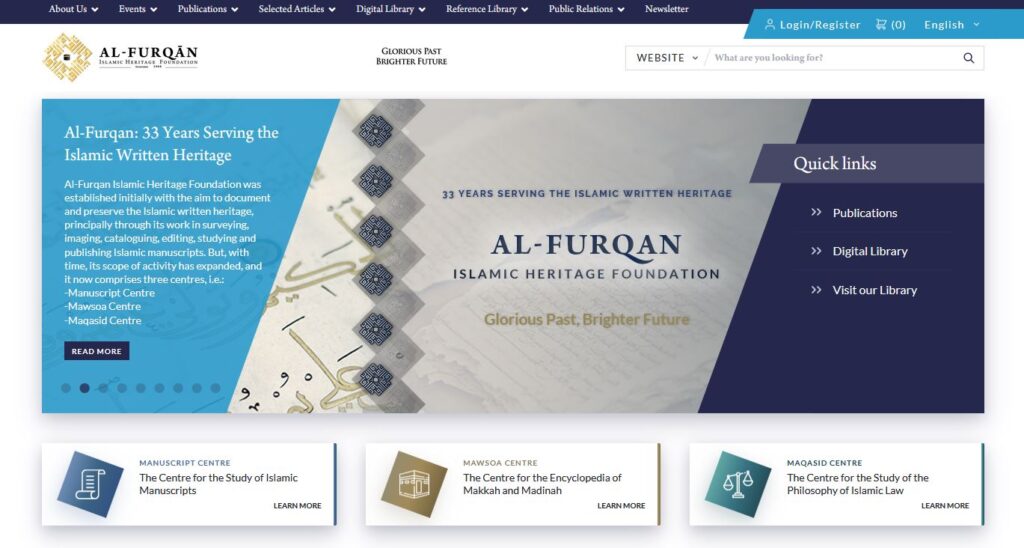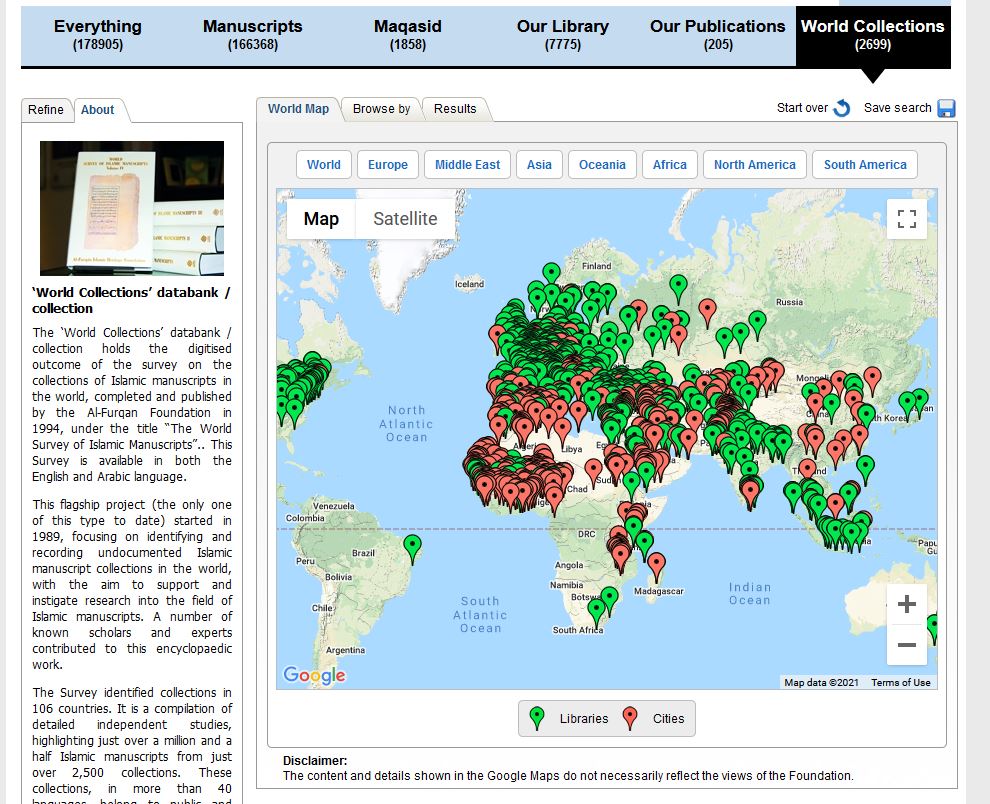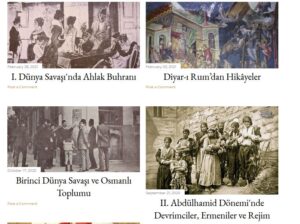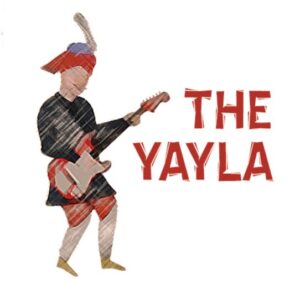
Al- Furqan Islamic Heritage Foundation, is a non-profit institution and was founded in 1988 by Ahmad Zaki Yamani and is based in London.
Preservation and documentation of written Islamic Heritage was the initial goal of the Al-Furqan, but it has expanded beyond its initial aim and has three centers active in the field of Islamic studies. Also Al-Furqan has published many different publications in the field of Islamic manuscripts, one of which is “World Survey of Islamic Manuscripts” and is known as a pioneering work that catalogues manuscripts in various countries from all over the world.
This publication is available at McGill library and can be found here : https://mcgill.on.worldcat.org/oclc/26816242
Moreover, after completion of the above mentioned publication the digitized outcome of the World Survey of Islamic Manuscripts is called ‘World Collections’ databank and can be accessed through Al-Furqan digital library at this address: https://digitallibrary.al-furqan.com/world_library.

The three centers of Al-Furqan, with their publication, research and academic activates, are contributing in various ways to the goal of the foundation, which is conservation, promotion and study of Islamic manuscripts, these three centers are:
“The Manuscript Centre within Al-Furqan was established in 1988, aiming to preserve and study the Islamic manuscripts, which constitute a particularly important part of Islamic heritage…..”
“[….] The Manuscript Centre within Al-Furqan is committed to mobilising all available expertise to preserve these manuscripts and to restore their content to the cultural mainstream.”
“In 1991, the late Sheikh Hamad al-Jasser, a member of Al-Furqan Islamic Heritage Foundation, gave a keynote speech at the Foundation’s launch, in which he presented some of the most valuable manuscripts of Makkah and Madinah and urged the Foundation to undertake the task of producing an encyclopaedia of the two great cities.”
“The mission of the Centre is summarised in the revitalisation of the knowledge of al-maqasid (objectives, purposes), in order to develop the process of ijtihad (free reasoning) and the renewal of Islamic fiqh (jurisprudence), its fundamental theory (usul), and Islamic thought in general. The Centre also aims to broaden the horizons of knowledge for students of Islamic studies everywhere.”
Another important part of Al-Furqan Foundation is its Digital library which was established in 2013 with the aim of advancing and supporting research as well as raising awareness regarding Islamic written heritage especially Islamic manuscripts. To this end, Al-Furqan Digital Library has a valuable and large collection of references as well as primary resources and presents an increasing repository of bibliographic information about manuscripts and manuscript collections worldwide.

This Digital library is user-friendly and interactive and is available in Arabic and English. It also has a very well-designed guide that walks users through various aspects of the library and show them how to use and access material.
Moreover, Al-Furqan Foundation’s website provides access to a wide range of different information including a section called Selected Articles that provides access to the different full text article in the selected topics of Articles on Islamic Manuscripts , Articles on Makkah & Madinah , Articles on the Philosophy of Islamic Law as well as Articles related to International Days .

Al-Furqan has many publications which can be browsed here, also it worth mentioning that Islamic Studies Library of McGill has many of its publication which can be searched and found in the library catalogue.









